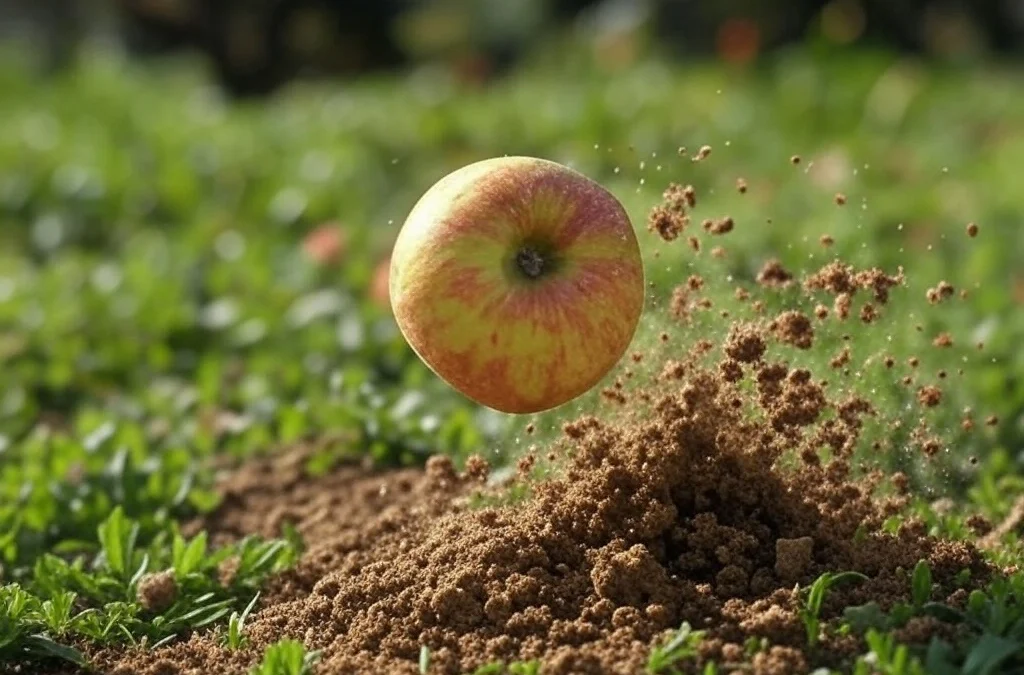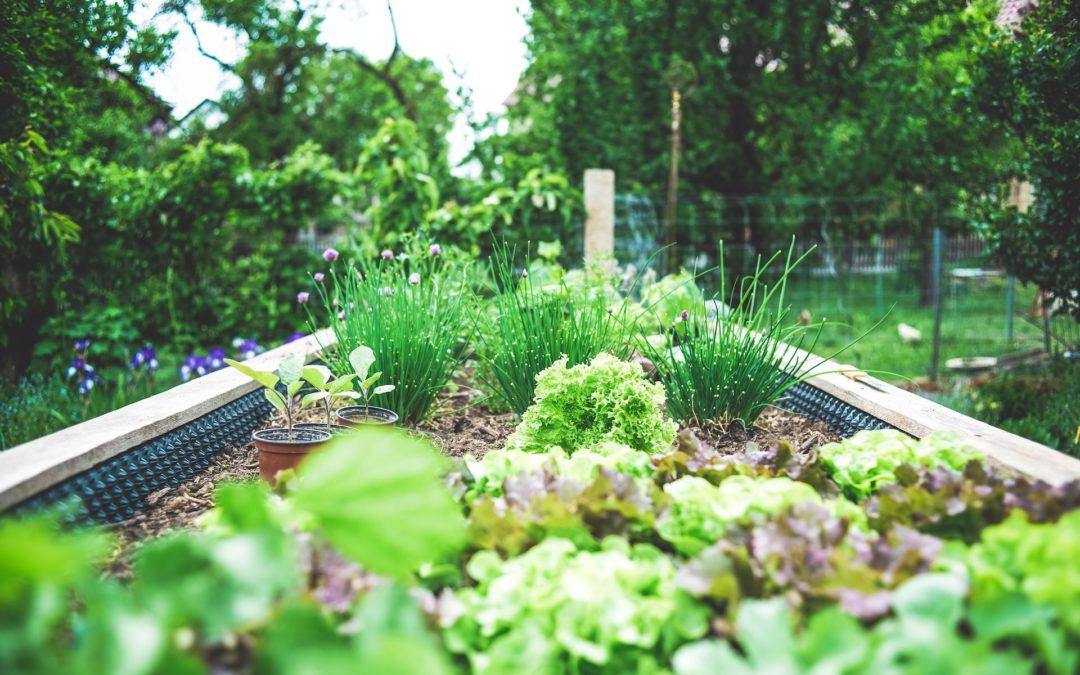In recent years, the demand for organic products has been on the rise as people become more conscious of the impact of synthetic chemicals on their health and the environment. Growing organic vegetables at home is not only a pleasing experience but also a sustainable way to provide your family with fresh, nutritious, and chemical-free products. Whether you have a sprawling garden or a small balcony, this comprehensive guide will let you know how to grow organic vegetables at home.
10 Best Tips How to Grow Organic Vegetables at Home
- Selecting the Right Location
Before you begin your organic gardening journey, it’s essential to choose the right location for your garden. Most vegetables thrive in full sunlight, so look for a spot that receives at least 6-8 hours of direct sunlight daily. If limited to a balcony or patio, go for vegetables that can tolerate partial shade. Enough sunlight ensures plant growth. Additionally, consider the accessibility of the area and its nearness to a water source. In fact, the convenience of reaching your vegetable garden and watering it regularly will be crucial to maintaining its health.
- Soil Preparation for Organic Gardening
Healthy soil is the foundation of successful organic gardening. Test your soil’s pH level and amend it if necessary to achieve the ideal pH range for the specific vegetables you intend to grow. Most vegetables prefer a slightly acidic to neutral pH (around 6.0 to 7.0).To improve soil structure and fertility, add organic matter such as compost, well-rotted manure, or leaf mold. Compost is a valuable resource that adds essential nutrients, improves moisture retention, and supports beneficial soil microorganisms.
- Planning Your Organic Vegetable Garden
Effective planning is key to a successful organic vegetable garden. Start by making a list of the vegetables you want to grow and consider their individual requirements. Group together plants with similar needs for water, sunlight, and soil conditions. This practice, known as companion planting, can promote better growth and help deter pests. Furthermore, practice crop rotation to prevent the depletion of specific nutrients and minimize the risk of soil-borne diseases. Crop rotation involves changing the location of crops each year to ensure they are not planted in the same spot season after season.
- Selecting Organic Seeds or Seedlings
Choosing the right seeds or seedlings is a crucial step in organic gardening. Look for certified organic and non-GMO seeds or seedlings to maintain the integrity of your organic garden. Many nurseries and online retailers offer a wide variety of organic options, making it easier than ever to access high-quality seeds.
- Planting Your Organic Vegetable Garden
When planting your organic vegetables, follow the guidelines on the seed packets or plant labels. Planting depth, spacing, and timing are essential factors for successful growth. Start by preparing the soil in your chosen area, ensuring it’s well-drained and free of weeds—plant seeds at the appropriate depth and distance from each other to prevent overcrowding. If you’re using seedlings specifically, gently transplant them into the prepared soil. Remember to water your newly planted vegetables adequately. A measured watering can or drip irrigation system is recommended to avoid disrupting the soil and seedlings.
- Watering Your Organic Garden
Water is essential for the healthy growth of your organic vegetables. Also, consistent and appropriate watering practices will help your plants develop strong root systems and thrive throughout the growing season. Keep in mind that different vegetables have different water requirements. Generally, it’s best to water your garden in the morning or early evening to reduce water loss through evaporation. Ensure that the water reaches the roots of the plants and doesn’t merely wet the leaves.
- Mulching for Organic Gardening
Mulching is a valuable practice in organic gardening. Apply a layer of organic mulch, such as straw, shredded leaves, grass clippings, or compost, around the base of your plants. Mulch serves several important purposes such as:
– First, retain soil moisture, reducing the frequency of watering.
– Second, suppresses weed growth, minimizing competition for nutrients and water.
– Also, Moderates soil temperature, providing a more stable environment for plant roots.
– Finally, enhances soil structure and promotes beneficial microbial activity.
- Organic Fertilization
Organic fertilization is vital for providing essential nutrients to your plants without the use of synthetic chemicals. They are derived from natural sources and gradually release nutrients into the soil, nourishing the plants over time. Compost is an excellent all-around organic fertilizer that not only enriches the soil but also supports a thriving ecosystem of beneficial microorganisms. Other organic options include well-rotted manure, seaweed extracts, bone meal, and fish emulsion.
Managing pests without resorting to chemical pesticides is a key aspect of organic gardening. Integrated Pest Management (IPM) is a holistic approach based on prevention, observation, and selective intervention. Start by encouraging beneficial insects and wildlife in your garden. For example, ladybugs, lacewings, and praying mantises are natural predators that help control aphids and other harmful insects. Attract birds, frogs, and other wildlife that can keep pest populations in check. If you encounter pest issues, try using organic solutions like neem oil, garlic spray, or soap solutions. Additionally, regularly inspect your plants for signs of pests and take prompt action to prevent infestations from spreading.
Weeds can quickly become a nuisance in any garden, robbing your organic vegetables of essentials such as nutrients, water, and sunlight. Controlling weeds without the use of chemical herbicides is a fundamental principle of organic gardening.
Hand-pulling weeds is an effective and environmentally friendly way to manage them. Ensure you remove the entire weed, including the roots, to prevent regrowth.
Mulching, as mentioned earlier, can also help suppress weed growth and reduce the need for manual weeding. Additionally, planting vegetables closer together can create a dense canopy that shades out weeds.
- Support and Pruning
Some vegetable plants, such as tomatoes, cucumbers, and pole beans, require support as they grow. Staking, trellising, or using cages can help keep these plants upright and prevent damage to fruits. Pruning is another vital practice to maintain the health of your vegetable plants. Regularly remove dead or diseased leaves and stems to improve air circulation and reduce the risk of fungal infections.
- Harvesting Organic Vegetables
Harvesting your organic vegetables at the right time ensures optimal flavor and quality. Different vegetables have different signs of ripeness, so it’s essential to know when to pick each one. For leafy greens like lettuce and spinach, harvest individual leaves as needed, allowing the plant to continue producing. For fruits like tomatoes and peppers, wait until they reach their full color and size before picking.
- Composting for Organic Gardening
Composting is a cornerstone of sustainable organic gardening. It allows you to recycle kitchen scraps, yard waste, and vegetable trimmings, transforming them into nutrient-rich compost to enrich soil and reduce waste.
Therefore, growing organic vegetables at home is a fulfilling and sustainable way to provide fresh, healthy food for yourself and your family. By following these steps and embracing organic gardening principles, you’ll not only enjoy the taste of your homegrown produce but also contribute to a healthier planet by reducing your environmental footprint. Happy gardening!
What is Organic Gardening?
Organic gardening is more than just a method of growing fruits and vegetables; it’s a harmonious dance with nature, a commitment to the environment, and a profound respect for the interconnectedness of life on our planet. At its core, organic gardening represents a return to simplicity, a rekindling of our ancestral relationship with the land, and a path toward producing healthier, tastier, and more sustainable crops.
In essence, organic gardening can be defined as a holistic and sustainable approach to cultivating plants, emphasizing the use of natural and ecologically friendly practices. This approach contrasts with conventional gardening, which often relies on synthetic chemicals and mechanized methods that can harm the environment and human health.
Key Principles of Organic Gardening
- Soil Health: At the heart of organic gardening is the belief that healthy soil begets healthy plants. Organic gardeners prioritize building and maintaining fertile, well-structured soil teeming with beneficial microorganisms. Through the use of compost, organic matter, and reduced soil disruption, they enhance the soil’s natural fertility and structure.
- Natural Fertilization: Organic gardening shuns chemical fertilizers and instead embraces organic alternatives such as compost, mulch, and cover cropping. By working with nature, organic gardeners promote nutrient cycling and minimize nutrient runoff that can pollute waterways.
- Pest and Disease Management: Organic gardeners focus on prevention and use natural, non-toxic methods to control pests and diseases. Companion planting, biological controls, and fostering biodiversity all play a crucial role in reducing the need for chemical interventions.
- Biodiversity: Organic gardens are often a tapestry of diverse plant species, attracting a variety of pollinators and beneficial insects. By encouraging a web of life within the garden, organic gardeners create a balanced ecosystem that helps maintain overall garden health.
- No Synthetic Chemicals: One of the defining characteristics of organic gardening is the avoidance of synthetic pesticides, herbicides, and genetically modified organisms. Instead, natural solutions are employed to tackle challenges in a way that promotes long-term sustainability.
- Transparency and Accountability: Organic gardening is underpinned by certification standards and regulations that ensure transparency and consumer trust. Organic products often carry labels such as “USDA Organic” or “EU Organic,” providing a clear assurance of the methods used in cultivation.
The Organic Gardener’s Journey
Embarking on the path of organic gardening is a rewarding endeavor. It’s a commitment to the environment, a connection to the past, and an investment in a healthier, more sustainable future. As organic gardeners, we take on the role of stewards of the earth, working in concert with the rhythms of nature.
In your own garden, whether it’s a sprawling backyard plot or a modest urban balcony, you have the power to embrace organic gardening principles. By nurturing the soil, fostering biodiversity, and respecting the natural world, you can produce a bounty of fresh, chemical-free produce and experience the profound satisfaction of knowing that you are part of a solution—a way forward that respects the land and all that it sustains.
In the realm of organic gardening, the journey is as meaningful as the destination. It’s a journey that beckons you to learn, adapt, and become a co-creator in the grand tapestry of life. It’s a journey that inspires and empowers, one seedling at a time, and it’s a journey that connects us to the deep-rooted wisdom of our ancestors who, too, understood the timeless beauty of nurturing the land organically.
The Significance of Cultivating Organic Vegetables at Home
In a world characterized by convenience and accessibility, the idea of growing your own organic vegetables at home might seem like a nostalgic practice. Supermarkets and grocery stores offer an abundance of produce, making it easy to overlook the importance of this hands-on and wholesome approach. However, the act of nurturing your own organic vegetables at home transcends mere gardening. It’s a movement that has implications for our health, the environment, and our connection to the natural world.
Nourishing the Body and Mind
At the heart of the matter is our health and well-being. Homegrown organic vegetables, untouched by synthetic chemicals, represent the purest form of nature’s bounty. When you pick a ripe tomato from your garden, you’re savoring the peak of flavor and nutrition. This self-sufficiency has far-reaching effects:
-
Nutrient Density: Homegrown vegetables are often more nutrient-rich and brimming with antioxidants, offering superior taste and health benefits.
-
Safety from Harmful Chemicals: By steering clear of synthetic pesticides and herbicides, you’re safeguarding yourself and your family from potentially harmful substances commonly found in conventionally grown produce.
-
Reducing Food Miles: Your garden eliminates the need for long transportation, contributing to a reduced carbon footprint associated with food supply chains.
-
Mental Well-being: Gardening is not just about food; it’s also a therapeutic activity that promotes mental and emotional health. It’s a chance to disconnect, commune with nature, and alleviate stress.
Stewardship of the Environment
Cultivating organic vegetables at home is a conscious choice that extends beyond personal well-being to environmental stewardship:
-
Reduced Chemical Runoff: The avoidance of synthetic chemicals helps prevent their harmful runoff into soil and water, protecting aquatic ecosystems.
-
Biodiversity Promotion: Your home garden becomes a thriving hub for pollinators, beneficial insects, and birds, contributing to biodiversity and a balanced ecosystem.
-
Soil Health: Organic gardening practices enrich soil quality, fostering a fertile foundation for plant growth.
Food Security and Resilience
Beyond health and environmental benefits, growing organic vegetables at home signifies self-reliance and resilience:
-
Food Security: In unpredictable times, the ability to produce your own food offers a reassuring safety net. Your garden provides fresh sustenance when external factors disrupt food supply chains.
-
Teaching Future Generations: By embracing home gardening, you impart valuable knowledge to the next generation. You teach them about food origins and nurture an appreciation for the Earth.
Read Also: Top 20 Benefits of Organic Gardening
The Most Popular on BitGlint

30 Wishful Thinking Examples & Meaning
Wishful thinking is something we all do at some point. You hope things will turn out fine—even if there’s no real...

Top 100 Going To Questions: Conversation Questions
Are you looking for great "going to questions" to spice up your conversations? This article has got you covered!...

30 Patterns in Nature: Examples & Explanation
Patterns in nature surround us every day. From the delicate veins on a leaf to the mesmerizing spirals of a galaxy,...

20 Examples of Gravity & What Gravity Really Is
Gravity is one of the most important forces in the universe, but many people don’t fully understand what it really is...

50 Examples of Square Things
Square things are part of everyday life, even if we don’t always think about them. From objects we use at home to...

30 Different Vibes & What They Mean
We all talk about "vibes," but what does that really mean? A vibe is the feeling or atmosphere you sense in a place,...

20 Chronology Examples & Meaning
Chronology is something we use more than we realize. It shows up in conversations, in how we remember the past, and in...
Get Inspired with BitGlint

